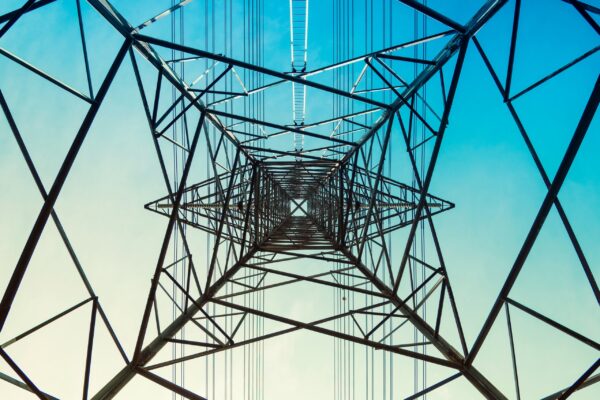
How can the targets set out in the Paris Agreement be achieved if the world continues to utilise fossil fuels at the current rate?
The only way to genuinely achieve net-zero by 2050 is for all countries, including the UK, to decarbonise their economy through renewable energy, electrification and implementing energy efficiency measures.
Although energy efficiency may be hard to visualise and measure, it does not diminish its role in helping fight the climate crisis. In fact, global energy use is responsible for 73.2% of all greenhouse gas emissions, so tackling energy consumption could significantly slow down and even reverse the current global warming trajectory.
Earlier this year, the eighth annual Global Conference on Energy Efficiency took place in Versailles, France. To facilitate the path to net-zero and expedite sustainable development, forty-six governments, including those from Africa, the Americas, Asia and Europe, agreed to double global energy efficiency progress by 2030. The IEA (International Energy Agency) conference also urged all attendees taking part in this year’s Conference of the Parties (COP) event to focus on energy efficiency implementation.
Discussions and decisions made in this global conference didn’t go unnoticed. The COP28 presidency confirmed that it will call attention to energy efficiency in this year’s COP and published a report setting a bold plan for global sustainability.
Tripling Renewable Power and Doubling Energy Efficiency by 2030
The COP28 presidency collaborated with the International Renewable Energy Agency (IRENA) and the Global Renewable Alliance (GRA) to produce a report titled: ‘Tripling Renewable Power and Doubling Energy Efficiency by 2030: Crucial Steps Towards 1.5 C.’ This was presented at the Pre-COP event in Abu Dhabi.
The report covers five key areas that will enable the world to achieve the target highlighted in the title. These include 1. infrastructure and system operation, 2. policy and regulation, 3. supply chain, skills and capacities, 4. scaling up public and private finance and 5. enhancing international cooperation.
Considering the COP28 presidency report and the global consensus forming around the IEA’s call to improve energy efficiency progress, it is likely that businesses will also be expected to do their part in supporting global decarbonisation.
What can businesses do to support global decarbonisation?
Employing energy efficiency measures within your site(s) and supply chain can help the UK reach its net-zero targets. This implementation can also benefit your organisation in several ways. Not only would you have a positive environmental impact by reducing carbon emissions, but you could also enhance your corporate image and save thousands of pounds per year.
Here are the main measures organisations can implement to increase energy efficiency while reducing costs and lowering emissions.
Top ways to increase your energy efficiency
- Monitor and set targets
Without knowing how much energy you’re consuming, it’s difficult to make informed decisions about how or where to place your energy efficiency efforts. By collecting and monitoring your energy consumption first, you can gain insight into where you can reduce costs and identify what measures could benefit your organisation.
- Reduce lighting consumption
As lighting accounts for 11% of total energy usage, switching to a more energy efficient type of lighting like LED could significantly reduce your energy cost and consumption. LEDs not only use less energy but also last considerably longer than traditional bulbs.
Alternatively, you could look into motion sensor lighting for your premises as it can automatically turn off lights when not in use. For instance, in meeting rooms or other shared spaces.
- Implement heat reduction measures
Turning down the heating by just a few degrees across your site(s) can make a significant impact in the grand scheme of things. In fact, if everyone in the UK turned down the temperature by just one degree, the country could save 1.18 million tonnes of carbon dioxide.
Alternatively, you could focus on minimising heat waste. This can be achieved by sealing possible draughts around doors and windows and exploring further draught-proofing measures. Or you could recycle heat from production lines or plants through waste heat recovery.
Remember to regularly check your heating and cooling systems as they may consume an unnecessarily large amount of energy. For instance, by setting timers on these systems, you could ensure that energy is not being used when not needed, such as during closing hours.
- Invest in on-site generation
On-site generation can be a powerful asset to your business, and there are several options available based on your needs and preferences, including installing solar PV or utilising a battery storage to store excess energy for later usage.
For many companies, electrification through on-site generation is a great source of renewable energy that can improve energy efficiency and reduce reliance on the grid. Indeed, implementing a fully electrified renewable system can cut up to 40% of the overall energy consumption.
- Educate employees
Another way to increase the adoption of energy efficiency measures is by training and educating staff members on the importance of this topic. After all, only by getting everyone on board can you truly make a noticeable difference in how energy is being consumed. Through workshops, business briefings, accessible, engaging collateral and signage and other means, you can help employees understand why changes are being made and what they can do to support your energy efficiency targets.
- Take advantage of technology
Technology can be an essential component when it comes to improving energy efficiency in business sites, and there are numerous tools available based on your specific goals.
For instance, Circuit-Level Monitoring (CLM) goes “behind the meter” and allows you to monitor specific circuits within your site(s), enabling you to track energy usage and gain complete visibility into consumption and carbon emissions in far more detail than is available from a billed meter. Another tool that can help with energy efficiency is Profile Alerts, a service that warns you when unusual patterns of excess consumption occur.
- Harvest rainwater
If you want to reduce water usage and lower your bill, you could explore rainwater harvesting. This measure gathers, stores and re-utilises the rainwater that falls on your premises.
Depending on how clean the rainwater is, it can be used in various ways. For instance, if the quality of the water is high, it can be employed for purposes such as cleaning equipment or irrigation. On the other hand, if the quality is low, it can be used in cooling systems or for flushing toilets.
- Electrify corporate transport
When it comes to corporate transportation, the best way to reduce greenhouse gas emissions and energy consumption is by encouraging employees to walk, cycle, use public transport or car share.
However, that won’t always be an option. If a private mode of transportation is needed, you could look into electrifying corporate transport through renewable sources. For instance, you could choose EV rentals or launch an employee electric car scheme.
- Apply recommendations from compliance reports
By utilising and implementing recommendations from mandatory compliance reports such as the Energy Savings Opportunity Scheme (ESOS), you can become energy efficient while simultaneously achieving compliance and moving closer to your carbon reduction targets.
Since these types of schemes usually require organisations to conduct audits of their energy usage and/or emissions, the government, or the official overseeing body, can propose measures to address excess consumption patterns. Therefore, receiving a bespoke strategy to help plan your net-zero journey.
- Conduct regular maintenance
Conducting regular maintenance throughout your building(s) to ensure that every measure is working correctly can further lower energy costs, consumption and emissions.
Additionally, by carrying out regular energy audits, you can gain the insight needed to meet your energy efficiency targets and optimise your current strategy. By acting on your surveys year on year you will turn your investment into real savings.
How energy efficiency measures have helped our clients
Through our advice and recommendations, we have helped over 3,500 organisations across the UK with their energy needs and net-zero ambitions. Here are a few examples of how our support has enabled businesses to improve their energy efficiency.
Hospitality case study
One client, a global restaurant chain operating over 1,000 stores across 35 countries, wanted assistance with energy monitoring and targeting (M&T) for their multi-site operation. The objective was to reduce energy consumption while minimising the additional workload for their energy manager.
We were asked to provide Profile Alerts and optimisation services to identify abnormal consumption patterns and provide corrective solutions to reduce consumption. Over the first 12 months of the project, the Profile Alerts service identified a range of one-off and recurring issues, leading to significant energy savings.
Through our expert advice and M&T measures, this client has saved 290,000 kWh annually and achieved cost savings of around £34,000 per year.
Manufacturing case study
Colpac Ltd, an award-winning food packaging company, has been working with us since January 2023.
They wanted to measure and understand their carbon footprint to see what impact their company was having on emissions and implement measures to mitigate these actions.
After various assessments, our experts decided that the best plan for the manufacturing company was to take full Scope 1, 2 and 3 carbon footprint assessments, a net-zero workshop, and net-zero strategy services.

“Together, we have calculated our Scope 1, 2 and 3 emissions for the very first time and have set both interim and net-zero targets for all three scopes.
We are now working with Inspired PLC to develop a net-zero strategy to meet these targets and improve our data collection methods for our year 3 data collection.
Talia Goldman
ESG Manager at Colpac
“At Colpac, providing nature-conscious, sustainable food packaging solutions is at the heart of what we do. Developing a net-zero programme is an integral part of our commitment to the environment and to responsible business. Our partnership with Inspired has given us an invaluable opportunity to build the specialist expertise we need to make real change.
From our initial and ongoing conversations with John Harper in the Business Development team, to working in depth with analysts and other colleagues in the ESG team, particularly with Senior ESG Analyst Harriet Kildahl, our partnership with Inspired has only gone from strength to strength.
Their people-first and detail-oriented approach and support is helping us to achieve and raise ambition at every step along the way. We are now working on our decarbonisation roadmap to meet our goals and making both carbon and cost savings along the way. Together, we are driving forward our mission for business to be a force for good in the world, for people and for planet.”
Talia Goldman, esg manager at colpac
Supporting businesses with their energy efficiency and sustainability goals
Increasing global energy efficiency is key to reaching the targets set out in the Paris Agreement, and businesses play a vital role in helping achieve this goal.
However, every business is unique, and depending on your size, structure, supply chain and multiple other aspects, some energy efficiency measures will work better than others.
If you would like to explore the best options for your business or need support with your journey to energy efficiency and net-zero, please contact us on 01772 689250 or email [email protected].










